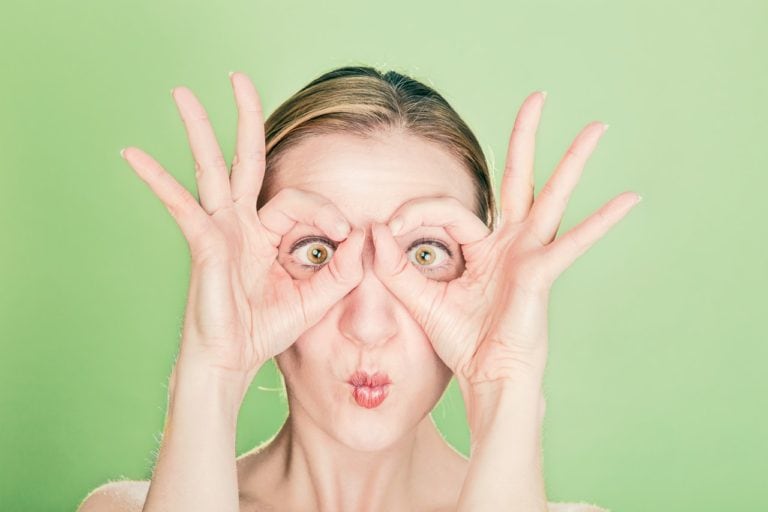A restless night or chronic sleep deprivation doesn’t just leave you feeling sluggish, irritable, and unmotivated—it also takes a toll on your eye health. Puffy eyelids, dark circles, and bloodshot eyes may be the visible signs of fatigue, but the hidden effects on vision can be far more concerning.
According to Gary Rodney, a Master of Optometry, Behavioural Optometrist, and Fellow of the International Academy of Orthokeratology and Myopia Control (FIAOMC), and Jacquie Gattegno, Bachelor Of Optometry (Hons), Smart Vision Behavioural Optometrist, Orthokeratologist and Principal Senior Optometrist at Eyes InDesign Smart Vision Optometry Bondi, poor sleep quality can contribute to a range of eye conditions, from dry eye syndrome to severe vision loss.
“People often underestimate how much sleep affects their eyesight. The eyes rely on sleep for rest and repair. Without it, the risk of vision problems increases significantly,” says Rodney.
Gattegno adds, “We often see patients who are experiencing dry eyes, twitching, or difficulty focusing, and they don’t realise that their sleep habits could be the root cause. Prioritising sleep is an essential part of protecting your vision.”
Why a Good Night’s Sleep is Essential for Eye Health
Sleep is when the body heals and restores itself—including the eyes. During this time, the eyes:
- Produce and distribute tears to keep the surface lubricated.
- Repair damaged tissues and renew cells.
- Strengthen the muscles and nerves responsible for eye movement and focus.
The recommended sleep duration is:
- 7 to 8 hours per night for adults.
- 8 to 10 hours for teenagers.
- More than 10 hours for young children, as their eyes are still developing.
“Insufficient sleep may start with minor discomfort, but over time, it can lead to more serious eye conditions, some of which can cause irreversible vision loss,” warns Gattegno.
How Sleep Deprivation Affects the Eyes
1. Eye Spasms and Twitching (Myokymia)
A lack of sleep can cause involuntary eye spasms, which may not be dangerous but can be extremely distracting.
“Twitching can make it difficult to focus on tasks like reading, driving, or working on a computer. It’s a sign that the eye muscles are fatigued and need rest,” says Rodney.
2. Dry Eye Syndrome
When the eyes don’t produce enough tears or if tears evaporate too quickly, it leads to dry, irritated eyes. This condition is often linked to:
- Excessive screen time and reduced blinking.
- Poor sleep quality, which limits tear production.
Symptoms of chronic dry eye include:
- Redness, irritation, and burning sensations.
- Blurred vision and increased light sensitivity.
- Headaches and eye fatigue.
“Long-term dry eye syndrome can damage the cornea, which protects the eye from harmful UV rays. If left untreated, this could lead to vision impairment,” warns Rodney.
3. Increased Risk of Eye Infections
During sleep, tears help remove debris and bacteria from the eyes. Without adequate sleep, the eyes become more vulnerable to infections and inflammation.
“If you’re waking up with red, swollen, or sticky eyes, your immune system—and your tear production—may be compromised due to lack of sleep,” says Gattegno.
4. Higher Risk of Serious Eye Diseases
Glaucoma: The Silent Vision Killer
Glaucoma occurs when high intraocular pressure damages the optic nerve, leading to gradual vision loss. Research shows that poor sleep habits increase the risk of glaucoma, particularly in people with sleep apnea.
“Glaucoma is one of the leading causes of blindness, and it often develops without symptoms. Sleep deprivation may contribute to increased eye pressure, putting people at greater risk,” explains Rodney.
Diabetic Retinopathy: Sleep’s Role in Blood Sugar Control
Diabetes-related vision loss is one of the fastest-growing causes of blindness worldwide. Poor sleep can:
- Increase blood sugar fluctuations.
- Worsen retinal damage in diabetics.
- Lead to reduced oxygen supply to the eye.
“For diabetic patients, maintaining healthy sleep patterns is critical in preventing retinopathy. Good sleep supports better blood sugar control, reducing the risk of damage to the retinal blood vessels,” says Gattegno.
Anterior Ischemic Optic Neuropathy (AION)
A rarer but serious eye condition, AION occurs when blood flow to the optic nerve is disrupted, leading to sudden vision loss.
“Studies suggest a connection between sleep apnea and AION. Those who suffer from frequent interruptions in sleep may be at higher risk of developing optic nerve damage,” says Rodney.
How to Improve Sleep for Better Eye Health
1. Create a Sleep-Friendly Environment
- Keep the bedroom dark and cool to support melatonin production.
- Avoid screens at least one hour before bed to reduce blue light exposure.
- Follow a consistent sleep schedule, even on weekends.
2. Reduce Screen Time Before Bed
Excessive screen exposure, especially at night, can:
- Suppress melatonin, the hormone that regulates sleep.
- Cause digital eye strain and dry eyes.
“The blue light from screens interferes with our sleep cycle. Reducing screen time before bed allows the eyes to rest and prepare for sleep naturally,” explains Gattegno.
3. Stay Hydrated and Eat Vision-Friendly Foods
Dehydration can worsen dry eye symptoms. Drink plenty of water and include eye-nourishing foods such as:
- Leafy greens (rich in lutein for retinal health).
- Omega-3 fatty acids (found in salmon and walnuts to reduce inflammation).
- Vitamin A-rich foods (like carrots and eggs to support night vision).
4. Get Regular Eye Exams
Routine eye check-ups help detect early signs of sleep-related vision issues. A behavioural optometry assessment evaluates how well the eyes and brain work together, ensuring optimal function.
“If you’re experiencing eye discomfort, blurry vision, or light sensitivity, don’t ignore it. Your sleep patterns may be affecting your vision more than you realise,” says Rodney.
Prioritise Sleep for Long-Term Eye Health
Poor sleep affects more than just energy levels—it has long-term consequences for vision and eye function.
“Think of sleep as an essential part of your eye care routine. Just like eating well and exercising, quality sleep helps protect and maintain healthy vision,” says Gattegno.
Rodney adds, “Your eyes work hard all day. Giving them the rest they need is one of the simplest yet most effective ways to prevent vision problems in the future.”
If you’re experiencing sleep-related vision issues or want to ensure your eyes are in top condition, Book an appointment, or call the Bondi clinic on (02) 9365 5047 or the Mosman clinic on (02) 9969 1600.Experience the difference a holistic approach to vision care can make. Contact Smart Vision Optometry today to see the world in a new way.







